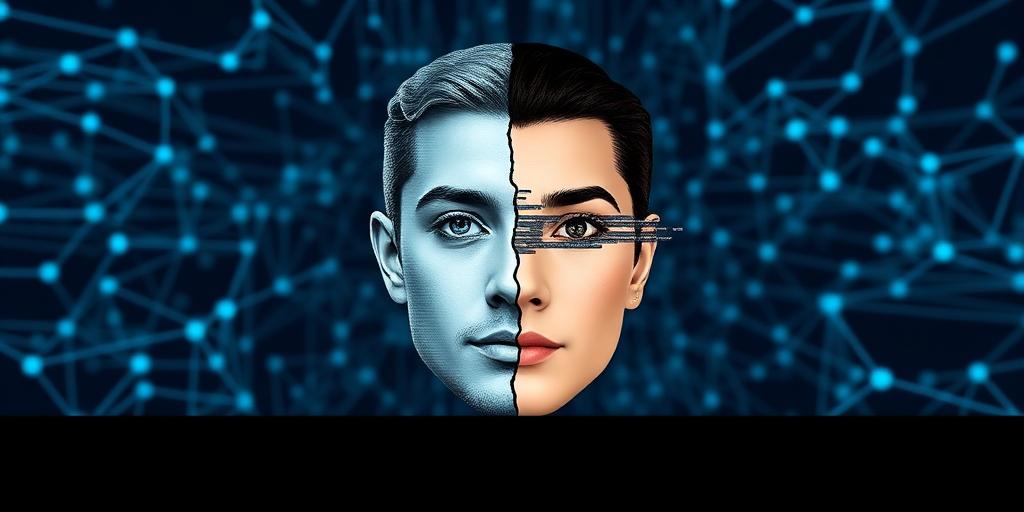The Ethics of Disinformation and Deepfakes
In an era defined by rapid technological advancement, the proliferation of disinformation and deepfakes presents a complex ethical challenge. These deceptive technologies, capable of manipulating audio and visual content, have the potential to erode trust, manipulate public opinion, and inflict significant harm on individuals and institutions. This article explores the ethical dimensions of disinformation and deepfakes, examining their impact on society and the responsibilities of individuals, organizations, and policymakers in mitigating their risks.
Understanding Disinformation and Deepfakes
Disinformation refers to deliberately false or misleading information intended to deceive the public. It can take various forms, including fake news articles, manipulated images, and fabricated social media posts. The intent behind disinformation is often to influence opinions, incite conflict, or undermine trust in credible sources.
Deepfakes, on the other hand, are a more recent and sophisticated form of disinformation. They use artificial intelligence (AI) to create highly realistic but fabricated videos or audio recordings of individuals saying or doing things they never actually said or did. Deepfakes can be used to damage reputations, manipulate political events, or even commit fraud.
Ethical Concerns
The use of disinformation and deepfakes raises a number of critical ethical concerns:
- Erosion of Trust: The widespread dissemination of false information undermines trust in institutions, media outlets, and even personal relationships. When individuals can no longer discern truth from falsehood, the foundation of a healthy society is threatened.
- Manipulation of Public Opinion: Disinformation and deepfakes can be used to manipulate public opinion on important issues, swaying elections, influencing policy decisions, and inciting social unrest.
- Reputational Damage: Deepfakes can be used to create compromising or defamatory content that damages the reputation of individuals, businesses, and organizations. This can have severe consequences, both personally and professionally.
- Threat to Democracy: The ability to manipulate public opinion and undermine trust in democratic institutions poses a significant threat to the functioning of democracy itself.
- Privacy Violations: The creation and dissemination of deepfakes often involve the use of personal data without consent, raising serious privacy concerns.
Responsibilities and Mitigation Strategies
Addressing the ethical challenges posed by disinformation and deepfakes requires a multi-faceted approach involving individuals, organizations, and policymakers.
Individual Responsibilities:
- Critical Thinking: Individuals should cultivate critical thinking skills to evaluate the information they encounter online and offline. This includes questioning sources, verifying facts, and being wary of sensational or emotionally charged content.
- Media Literacy: Developing media literacy skills is essential for discerning credible sources from unreliable ones and understanding the techniques used to spread disinformation.
- Responsible Sharing: Individuals should be mindful of the information they share online and avoid spreading unverified or potentially false content.
Organizational Responsibilities:
- Social Media Platforms: Social media platforms have a responsibility to combat the spread of disinformation and deepfakes on their platforms. This includes implementing algorithms to detect and remove false content, providing users with tools to report disinformation, and promoting media literacy initiatives.
- Media Outlets: Media outlets should adhere to the highest standards of journalistic ethics, verifying facts and avoiding the spread of unverified information.
- Technology Companies: Technology companies should invest in research and development to create tools and technologies that can detect and counter deepfakes.
Policy and Regulation:
- Legislation: Policymakers should consider legislation to criminalize the creation and dissemination of malicious deepfakes, while also protecting freedom of speech.
- Regulation: Regulatory bodies should establish guidelines and standards for the responsible use of AI and other technologies that can be used to create disinformation and deepfakes.
- International Cooperation: International cooperation is essential to address the global challenge of disinformation and deepfakes, sharing best practices and coordinating efforts to combat their spread.
Conclusion
The ethics of disinformation and deepfakes are a pressing concern in today's digital age. Addressing this challenge requires a collective effort from individuals, organizations, and policymakers. By promoting critical thinking, media literacy, and responsible technology development, we can mitigate the risks posed by these deceptive technologies and safeguard the integrity of information and democratic processes. As technology continues to evolve, it is crucial to remain vigilant and proactive in addressing the ethical implications of disinformation and deepfakes.









